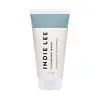What's inside
What's inside
 Key Ingredients
Key Ingredients

 Benefits
Benefits

 Concerns
Concerns

 Ingredients Side-by-side
Ingredients Side-by-side

Aloe Barbadensis Leaf Juice
Skin ConditioningBentonite
AbsorbentWhey Ferment
Skin ConditioningGlycerin
HumectantPolyhydroxystearic Acid
EmulsifyingSalicylic Acid
MaskingAloe Barbadensis Leaf Extract
EmollientSpirulina Platensis Extract
Skin ProtectingZingiber Officinale Root Extract
MaskingLycium Barbarum Fruit Extract
AstringentCinnamomum Cassia Bark
Skin ConditioningCharcoal
AbrasiveJasminum Sambac Flower Extract
MaskingRosmarinus Officinalis Leaf Extract
AntimicrobialCitrus Aurantifolia Oil
CleansingAloe Barbadensis Leaf Juice, Bentonite, Whey Ferment, Glycerin, Polyhydroxystearic Acid, Salicylic Acid, Aloe Barbadensis Leaf Extract, Spirulina Platensis Extract, Zingiber Officinale Root Extract, Lycium Barbarum Fruit Extract, Cinnamomum Cassia Bark, Charcoal, Jasminum Sambac Flower Extract, Rosmarinus Officinalis Leaf Extract, Citrus Aurantifolia Oil
Water
Skin ConditioningBentonite
AbsorbentZinc Oxide
Cosmetic ColorantColloidal Sulfur
AntimicrobialPropanediol
SolventGlycolic Acid
BufferingSalicylic Acid
MaskingHyaluronic Acid
HumectantCamphor
MaskingCetyl Alcohol
EmollientGlyceryl Stearate
EmollientChondrus Crispus Extract
Skin ConditioningAnthemis Nobilis Flower Extract
MaskingTitanium Dioxide
Cosmetic ColorantLimonene
PerfumingEthylhexylglycerin
Skin ConditioningPotassium Sorbate
PreservativeIngredients Explained
These ingredients are found in both products.
Ingredients higher up in an ingredient list are typically present in a larger amount.
Bentonite is an aluminium phyllosilicate clay with great absorbent properties. The name 'bentonite' comes from the area where the largest source is found: Fort Benton, Wyoming.
As a clay, bentonite is often used to absorb excess oil and provide exfoliation. It has also been shown to have some antibacterial and anti-inflammatory properties. Studies show bentonite was effective at calming dermatitis from poison ivy and in diaper dermatitis of infants. Bentonite has also been shown to act as a barrier against toxic compounds on your skin.
Sunscreens containing bentonite display higher water resistance and stay on the skin for much longer. The sunscreens containing bentonite also show higher potency and UV light absorbtion.
Bentonite is naturally created from volcanic ash and several natural weathering/hydrothermal processes.
A common usage of bentonite is removing excess protein from white wines. Bentonite contains a property of being able to absorb large amounts of protein from aqueous solutions.
Phyllosilicate clay has a structure formed by sheets.
Learn more about BentoniteSalicylic Acid (also known as beta hydroxy acid or BHA) is a well-known ingredient for treating skin that struggles with acne and clogged pores. It exfoliates both the skin's surface and deep within the pores to help clear out buildup, control oil, and reduce inflammation.
Unlike AHAs (alpha hydroxy acids), salicylic acid is oil-soluble. This allows it to penetrate into pores which makes it especially effective for treating blackheads and preventing future breakouts.
Salicylic acid is also known for its soothing properties. It has a similar structure to aspirin and can calm inflamed or irritated skin, making it a good option for acne-prone skin that is also sensitive.
Concentrations of 0.5-2% are recognized by the U.S. FDA as an over-the-counter topical acne product.
It can cause irritation and/or dryness if one's skin already has a compromised moisture barrier, so it's best to focus on repairing that before introducing this ingredient into your routine.
While salicylic acid does not increase sun sensitivity, it’s still important to wear sunscreen daily to protect your skin.
If you are looking for the ingredient called BHA or Butylated Hydroxyanisole, click here.
Learn more about Salicylic Acid